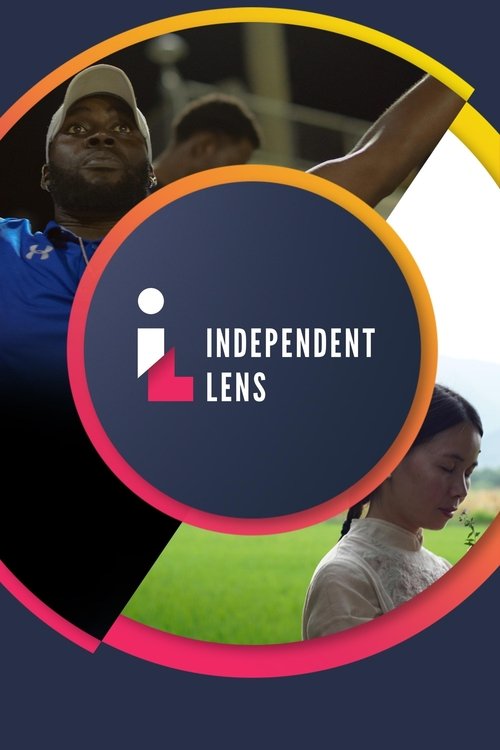
Broadcast date
12-09-2022 • 16 episodes
Episodes of this season
1. Hazing

Hazing is a widespread, far-reaching practice fueled by tradition, secrecy, groupthink, power, and the desire to belong in fraternities and sororities on college campuses across the U.S. Filmmaker Byron Hurt embarks on a deeply personal journey to understand the underground rituals of hazing, revealing the abuse and the lengths college students will go to fit in.
2. TikTok, Boom.

What does it mean to be a digital native? TikTok, Boom. dissects the platform along myriad cross-sections—algorithmic, socio-political, economic, and cultural—to explore the impact of the history-making app. Balancing a genuine interest with healthy skepticism, delve into the security issues, global political challenges, and racial biases behind the platform.
3. Move Me

At 27, Kelsey Peterson dove into Lake Superior as a dancer and emerged paralyzed. But within the Spinal Cord Injury (SCI) community, she found allies in her quest to discover who she is now and to dance with disability. When a cutting-edge trial surfaces, it tests her expectations of a possible cure. She finds herself both scared it might not work—and scared that it might.
4. Children of Las Brisas

In Venezuela, amidst a backdrop of poverty, murder, and corruption, the El Sistema youth orchestra offers children hope and the opportunity to pursue a life of art in spite of the harshness of the society around them. Yet the country’s spiraling collapse and political repression threatens the musicians’ dreams of a better life.
5. The Big Payback

An Evanston, Illinois rookie alderwoman led the passage of the first tax-funded reparations bill for Black Americans. While she and her community struggle with the burden to make restitution for its citizens, a national racial crisis engulfs the country. Will the debt ever be addressed, or is it too late for a reparations movement to finally get the big payback?
6. No Straight Lines

When Alison Bechdel received a coveted MacArthur Award for her best-selling graphic memoir Fun Home, it heralded the acceptance of LGBTQ+ comics in American culture. From DIY underground comix scene to mainstream acceptance, meet five smart and funny queer comics artists whose uncensored commentary left no topic untouched and explored art as a tool for social change.
7. The Picture Taker

The vibrant life of Ernest Withers—civil rights photographer, and FBI informant—was anything but black and white. From his Memphis studio, Withers' nearly 2 million images were a treasured record of Black history but his legacy was complicated by decades of secret FBI service revealed only after his death. Was he a friend of the civil rights community, or enemy—or both?
8. Outta the Muck

Wade into the rich soil of Pahokee, Florida, a town on the banks of Lake Okeechobee. Beyond its football legacy, including sending over a dozen players to the NFL (like Anquan Boldin, Fred Taylor, and Rickey Jackson), the fiercely self-determined community tells their stories of Black achievement and resilience in the face of tragic storms and personal trauma.
9. Love in the Time of Fentanyl

As fentanyl overdose deaths in Vancouver, Canada reach an all-time high, the Overdose Prevention Society opens its doors—a renegade safe injection site that employs current or former drug users. Its staff and volunteers save lives and give hope to a marginalized community, doing whatever it takes to remain open in this intimate documentary that looks beyond the stigma of injection drug users.
10. Storming Caesars Palace

After losing her job as a hotel worker in Las Vegas, Ruby Duncan joined a welfare rights group of mothers who defied notions of the “welfare queen.” In a fight for guaranteed income, Ruby and other equality activists took on the Nevada mob in organizing a massive protest that shut down Caesars Palace.
11. Hidden Letters

The bonds of sisterhood, and the parallels of struggles among generations of women in China, are drawn together by the once-secret written language of Nüshu, the only script designed and used exclusively by women.
12. Free Chol Soo Lee

Sentenced to life for a 1973 San Francisco murder, Korean immigrant Chol Soo Lee was set free after a pan-Asian solidarity movement, which included Korean, Japanese, and Chinese Americans, helped to overturn his conviction. After 10 years of fighting for his life inside California state prisons, Lee found himself in a new fight to rise to the expectations of the people who believed in him.
13. Matter of Mind: My ALS

Amyotrophic lateral sclerosis (ALS) is a neuromuscular disease with an average survival time of 2-5 years from diagnosis. In this intimate exploration, three people with ALS, or Lou Gehrig's disease, bravely face different paths as they live with this progressively debilitating illness.
14. Sam Now

In this coming-of-age documentary about generational trauma, follow Sam Harkness from age 11 to 36 as his middle-class Seattle family is heartbroken and unsure of what to do after his mother suddenly leaves them. Woven together with home movies lovingly crafted by Sam’s half brother, director Reed Harkness, witness a boy grow up grappling with the ripple effects of a singular traumatic event.
15. Silent Beauty

In this autobiographical exploration of survivorship, New Orleans journalist and filmmaker Jasmin Mara López unabashedly shares her process of healing from childhood sexual abuse. After Jasmin discloses to her family she'd been abused by her grandfather, she liberates others to come forward in a story of confronting a culture of silence over generational trauma.
16. Mama Bears

They call one another “mama bears” because of the ferocity with which they fight for their children’s rights. Although they grew up as fundamentalist, evangelical Christians praying for the souls of LGBTQ+ people, these mothers are now willing to risk losing friends, family, and faith communities to champion their kids—even if it challenges their belief systems and rips apart their worlds.
Show more expand_more
keyboard_double_arrow_down